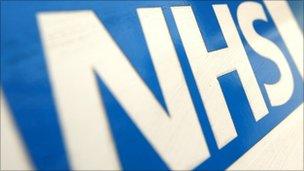Planned NHS revolution is scrapped
- Published
- comments

The NHS Bill will be substantially rewritten
The very first line of the Bill enacting the government's NHS reforms summed up ministers' intent and alarmed their critics.
It rewrote the duties of the secretary of state for health in England so that - unlike every one of his predecessors since the creation of the health service - he would no longer be legally obliged "to provide or secure the provision" of hospital, GP and other services.
Ministers wanted to signal that in future the key decisions in NHS would be taken by doctors not politicians. Their critics warned that government was washing its hands of responsibility. It is an argument - like so many others - which the critics have won.
After receiving today's report by the NHS Future Forum, ministers will confirm that from its very first line the NHS Bill will be substantially re-written. This is more than a matter of mere words. Some months ago I posted on the philosophy underlying the government's public sector reforms.
I pointed out that Tory policy guru Oliver Letwin was "fond of recalling how in the days before privatisation, ministers used to be asked questions about why someone's telephone line had not been installed on time. His aim is that in future it will seem equally bizarre to ask a minister about the performance of an individual school or police force".
I noted then the problem with this idea was "whether the public are yet ready to abandon decades of habit which has led them to say 'we elected you - so why's our school/hospital/police force so hopeless?'". Clearly, ministers have come to the view that the public are not ready and that politicians will be held to account for failures in hospitals whatever the wording of their legal duty.
Thus, a planned revolution - in which politicians would watch from a distance as GP commissioning bodies, an economic regulator and a new national board determined the future of the NHS - is to be scrapped. Instead they've chosen an evolution of Labour's policy of gradually opening up the NHS to more competition. At the same time, a new cadre of politicians - on new Health and Well Being Boards and clinical senates - have new duties to govern the future of the health service.